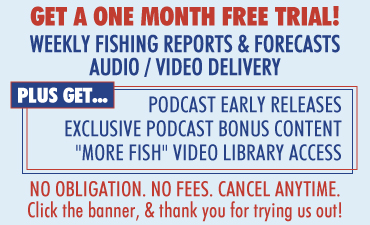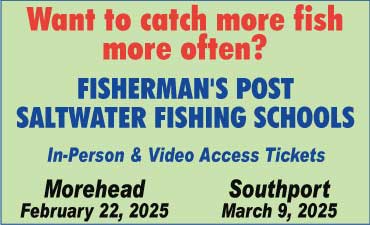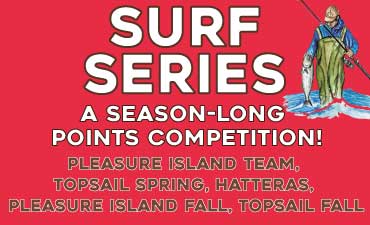Releases – October 9, 2014
With oyster season beginning Oct. 15, consumers are reminded to take common sense precautions when buying, storing, and preparing oysters and clams to prevent illnesses caused by two environmental bacteria.
Vibrio vulnificus and Vibrio parahaemolyticus are common, naturally occurring bacteria found throughout the coastal waters of the world and are most abundant when water temperatures are warm. In rare instances these bacteria can cause serious gastrointestinal illness or wound infections.
Over the past several years, the Centers for Disease Control and Prevention have reported an increase in Vibrio infections across the United States. While North Carolina has not had any reported cases directly linked to oysters harvested in our coastal waters, preventative measures are warranted.
People with compromised immune systems are most at risk, particularly for the more serious illnesses caused by Vibrio vulnificus. However, everyone is susceptible to less severe illness caused by pathogenic strains of Vibrio parahaemolyticus.
Before they indulge, consumers should remember these tips from the N.C. Division of Marine Fisheries’ Shellfish Sanitation and Recreational Water Quality Section:
(1) Thorough cooking destroys these naturally occurring Vibrio bacteria. Those with the following conditions are at higher risk for illness from raw or undercooked oysters and clams and are advised to fully cook all shellfish: Liver disease (from hepatitis, cirrhosis, alcoholism or cancer); Diabetes; Iron overload disease (Hemochromatosis); Cancer (including lymphoma, leukemia, Hodgkin’s disease); Stomach disorders; Any illness or medical treatment that weakens the body’s immune system. If you are unsure of your risk, ask your doctor.
(2) Only purchase oysters and clams from reputable dealers, retailers, grocers, markets, or restaurants. It is illegal for shellfish harvesters to sell directly to the public without a dealer license and certified facility. These facilities are regulated to ensure sanitation and temperature control is maintained on the shellfish.
(3) By law the shellfish tag must be removed by the vendor at the last point of sale. However, you may ask to see the tag to ensure you are receiving a fresh product. For the best quality, shellfish should be consumed within ten days of harvest. If properly refrigerated, they are still safe to eat and will last longer, but the quality will start to diminish.
(4) Keep oysters and clams refrigerated at 45 F or below until you are ready to prepare them. The Vibrio bacteria commonly found in shellfish can multiply rapidly if left exposed to air temperatures above 50 F.
(5) Thoroughly wash shellfish prior to cooking. Remove all mud and dirt from the shell using water and a stiff brush. Many dealers will wash oysters for a nominal fee when you purchase them. The mud and dirt may contain Vibrio bacteria, so it is important to clean the shellfish prior to serving or cooking.
(6) Prior to cooking or raw consumption, discard any dead shellfish. Dead shellfish will have slightly gaping shells that will not close when tapped.
Harvest of oysters by hand methods from public bottom begins at sunrise Oct. 15.
Those who hold proper commercial fishing licenses may harvest oysters from sunrise to sunset Monday through Friday each week. Commercial harvest limits are different for some waters, and fishermen should see Proclamation SF-5-2014 at http://portal.ncdenr.org/web/mf/proclamations for specific regulations.
Recreational hand harvest is allowed sunrise to sunset seven days a week. The harvest limit is one bushel of oysters per person per day or two bushels per vessel per day if more than one person is on a boat. No license is required for recreational harvest, but the oysters may not be sold.
The size limit is 3 inches shell length.
Waters may temporarily close to shellfish harvest due to high bacteria levels. Fishermen should frequently check http://portal.ncdenr.org/web/mf/proclamations-polluted-areas for shellfish closures, particularly after heavy rainfalls. Fishermen may also call the Division of Marine Fisheries at (252) 726-7021 or (800) 682-2632 to check for closures.
For more information about Vibrios, see the N.C. Department of Health and Human Services’ website at http://epi.publichealth.nc.gov/cd/diseases/vibrio.html.
For more information about shellfish safety, contact Patti Fowler, the division’s Shellfish Sanitation and Recreational Water Quality section chief, at (252) 808-8147 or Patti.Fowler@ncdenr.gov. You may also contact Steve Murphey, with the Shellfish Sanitation Section, at (252) 808-8155 or Steve.Murphey@ncdenr.gov.
For more information on this year’s oyster season, contact Mike Marshall, the division’s Central District manager, at (252) 808-8077 or Mike.Marshall@ncdenr.gov.
The N.C. Marine Fisheries Commission is looking for commercial and recreational fishermen and scientists to advise it on various fisheries issues.
Two regional advisory committees – Northern and Southern – and three standing advisory committees – Finfish, Habitat and Water Quality, and Shellfish/Crustacean – review matters referred to them by the commission, such as draft fishery management plans, and recommend management strategies. Committees may also bring issues pertaining to their region or subject matter to the commission’s attention.
The Marine Fisheries Commission chairman appoints members to these committees for three-year terms, and several terms will expire in January.
In addition, the commission is seeking a commercial pound net fisherman to serve on the Sea Turtle Advisory Committee.
To be qualified to serve on a committee, applicants may not have had a significant fisheries violation within the past three years.
Individuals interested in serving as an adviser should be willing to attend meetings at least once every two months and actively participate in the committee process, which includes reviewing scientific documents and issue papers to make recommendations on management strategies. Advisers will be reimbursed for travel and other expenses incurred in relation to their official duties.
Adviser applications are available online at http://portal.ncdenr.org/web/mf/mfc-advisory-committees, at Division of Marine Fisheries’ offices or by calling (252) 808-8022 or (800) 682-2632. Applications should be returned by Nov. 1 to the Division of Marine Fisheries, P.O. Box 769, Morehead City, N.C. 28557, Attention: Nancy Fish.
The N.C. Marine Fisheries Commission is accepting public comment on a slate of proposed rule changes that pertain to various issues to the shrimp, river herring, eel, and bay scallop fishery management plans and to establish a for-hire logbook requirement.
The commission will hold the following public hearings on the proposed rule changes:
Oct. 28 at 6:00 p.m.—N.C. Department of Environment and Natural Resources Washington Regional Office, 943 Washington Square Mall, U.S. 17, Washington
Oct. 29 at 6:00 p.m.—N.C. Department of Environment and Natural Resources Wilmington Regional Office, 127 Cardinal Drive Extension, Wilmington
The public may also comment on the proposed rules in writing to Catherine Blum, Rulemaking Coordinator, N.C. Division of Marine Fisheries, P.O. Box 769, Morehead City, N.C. 28557 or send comments by email to Catherine.Blum@ncdenr.gov or fax to (252) 726-0254. The public comment period will close at 5:00 p.m. Dec. 1.
Proposed rules impacting for-hire fishing operations and ocean fishing piers include: eliminating the current For-Hire Permit and Coastal Recreational Fishing License blanket licenses and replacing them with a captain’s for-hire license, a blanket for-hire vessel license, and a non-blanket for-hire vessel license; implementing a for-hire endorsement on the commercial fishing vessel registration and requiring weekly logbook reporting from for-hire licensees; and combining two separate ocean pier licenses into one Ocean Fishing Pier License with the same net cost.
The Marine Fisheries Commission is scheduled to vote on the proposed rules at its Feb. 18-20 meeting. If approved, the rules could take effect as early as May 1.
For more information on the proposed rules, go to http://portal.ncdenr.org/web/mf/mfc-proposed-rules-links or contact Blum at (252) 808-8014 or Catherine.Blum@ncdenr.gov.





